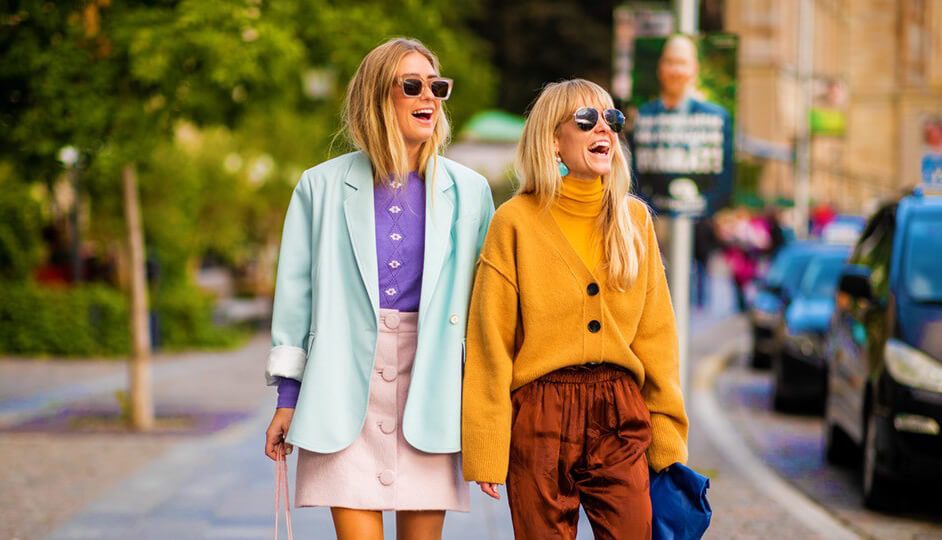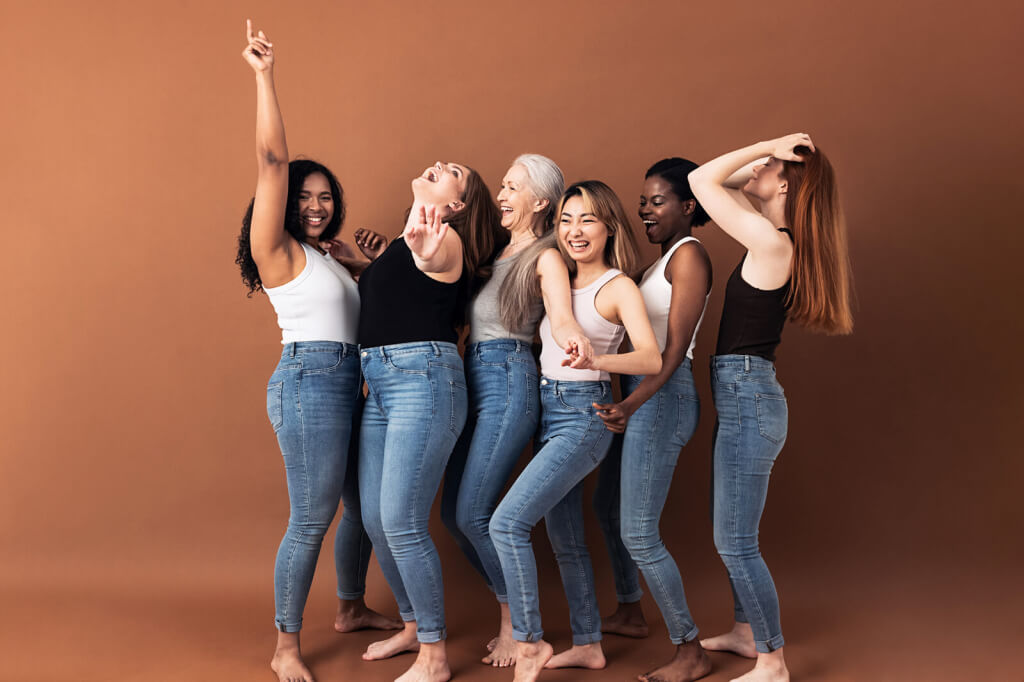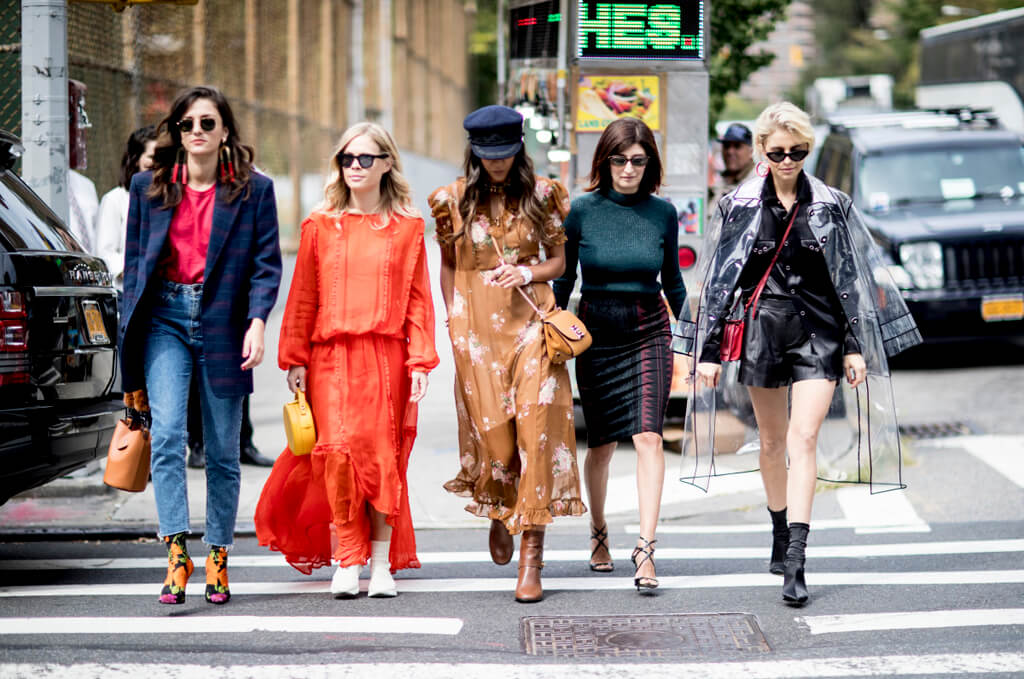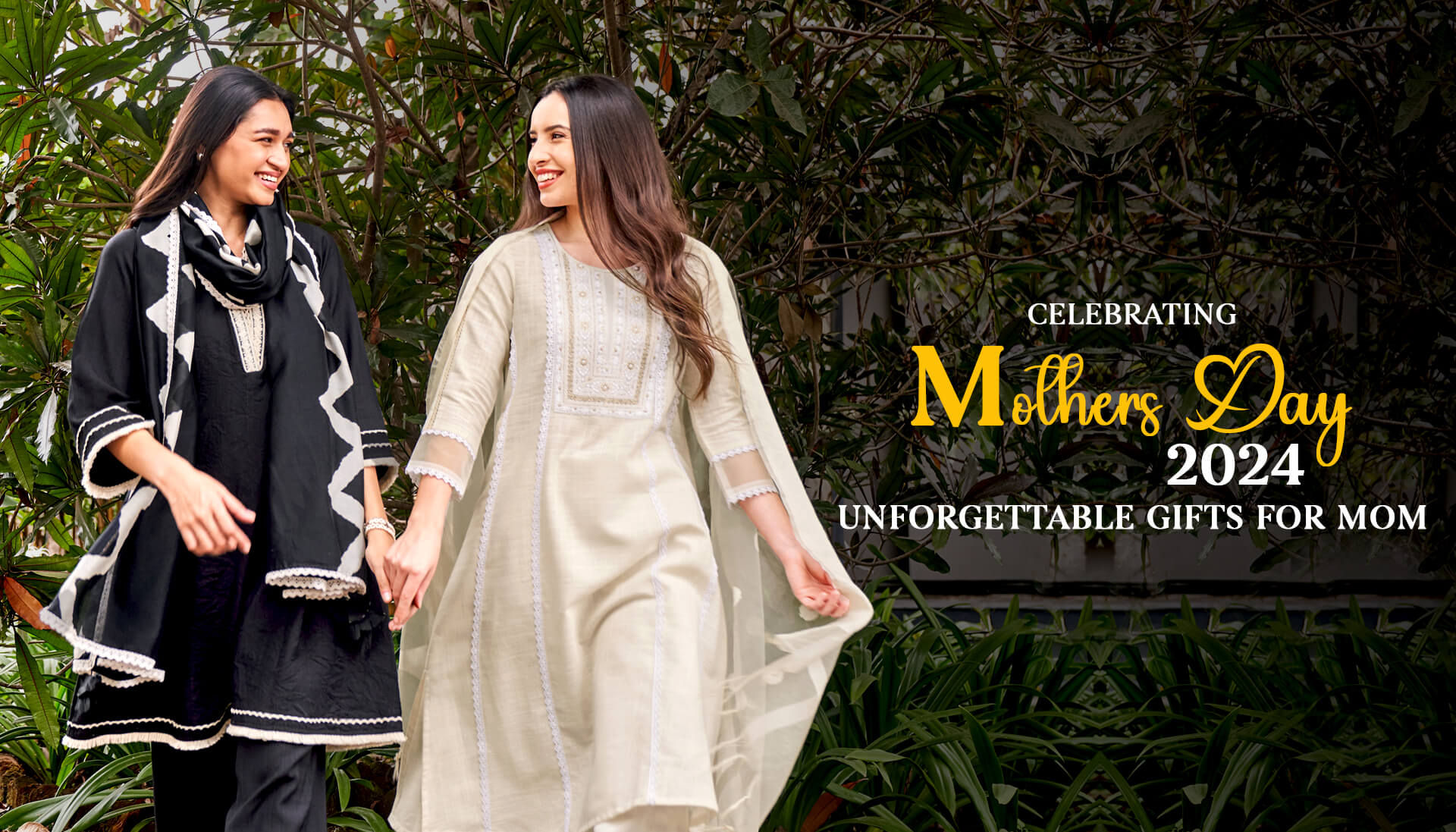The Psychology Of Fashion
In the bustling world of fashion, where trends come and go with the seasons, there lies a fascinating realm that goes beyond the surface allure of clothing. This realm delves into the intricate interplay between psychology and style, exploring how our choices in attire reflect and influence our thoughts, emotions, and behaviours. Welcome to the captivating domain of the psychology of fashion, where the threads of our wardrobe weave a tapestry of identity, self-expression, and social interaction.
The Language of Clothing: Communicating Without Words
Clothing is often described as a form of nonverbal communication, a silent language that speaks volumes about who we are and how we wish to be perceived. From the meticulously tailored suits of business executives to the bohemian chic of free spirits, each ensemble sends a message to the world, conveying aspects of personality, status, and cultural affiliation.

Consider the power of colour, for instance. Psychologists have long studied the psychological effects of colour on mood and behaviour, revealing how different hues can evoke distinct emotions and perceptions. In fashion, the choice of colour can therefore be a deliberate tool for shaping one's image and influencing the perceptions of others. A bold red dress may exude confidence and passion, while a serene blue ensemble might convey a sense of calm and trustworthiness.
The Influence of Self-Perception: Dressing the Part
Beyond its impact on external perceptions, fashion also holds sway over our internal world, shaping the way we see ourselves and our capabilities. The phenomenon known as "enclothed cognition" suggests that the clothes we wear can influence our cognitive processes and behaviour, imbuing us with the traits associated with those garments.

Consider the transformative power of a well-tailored suit or a favourite dress. When we don attire that makes us feel confident, professional, or stylish, we may find ourselves adopting the corresponding mindset and demeanour. This phenomenon underscores the intimate relationship between clothing and self-perception, highlighting the role that fashion plays in bolstering our confidence and sense of self-efficacy.
Social Identity and Belonging: Fashion as Tribe Membership
In the complex tapestry of human social dynamics, fashion serves as a potent symbol of group identity and belonging. From subcultures and tribes to social classes and professional circles, clothing plays a pivotal role in signalling affiliation and solidarity with like-minded individuals.

Consider the distinct aesthetic codes of various social groups, from the punk rockers adorned in leather and studs to the preppy elite sporting crisp blazers and pearls. Each subculture cultivates its own sartorial language, reinforcing a sense of shared identity and community among its members. Through fashion, individuals signal their allegiance to particular groups, forging connections and fostering a sense of belonging in an often-fragmented world.
Emotional Expression and Self-Discovery: Fashion as Personal Narrative
For many individuals, fashion serves as a vehicle for emotional expression and self-discovery, allowing them to articulate their innermost thoughts, feelings, and aspirations through the canvas of clothing. From the rebellious teenager experimenting with edgy styles to the seasoned fashionista crafting her signature look, each sartorial choice becomes a chapter in the ongoing narrative of selfhood.

Consider the way in which personal style evolves over time, reflecting shifts in identity, values, and life experiences. As we journey through the seasons of life, our fashion choices may serve as markers of personal growth and transformation, embodying the myriad facets of our multidimensional selves. In this sense, fashion becomes not merely a matter of aesthetics, but a deeply personal form of creative expression and self-discovery.
The Dark Side of Fashion: Body Image and Social Pressure
Yet, for all its beauty and allure, the world of fashion is not without its shadows. In an industry often preoccupied with unattainable standards of beauty and perfection, many individuals grapple with issues of body image, self-esteem, and social comparison. The relentless pursuit of an idealized image can lead to feelings of inadequacy, insecurity, and disordered eating behaviours, fuelling a cycle of self-doubt and dissatisfaction.

Consider the pervasive influence of media images and advertising, which often promote narrow standards of beauty that are unattainable for the vast majority of people. From airbrushed magazine covers to digitally enhanced Instagram posts, these idealized portrayals can distort perceptions of reality, perpetuating unrealistic beauty ideals and eroding self-confidence.
Navigating the Intersection of Fashion and Psychology
In the complex tapestry of human experience, the psychology of fashion occupies a unique and multifaceted role, weaving together threads of identity, self-expression, social dynamics, and emotional well-being. From the clothes we wear to the way we perceive ourselves and others, fashion exerts a profound influence on virtually every aspect of our lives.

As we navigate the ever-changing landscape of fashion and style, it is essential to approach this realm with mindfulness, compassion, and a critical eye. By embracing the power of clothing as a tool for self-expression and connection, while remaining vigilant against its potential pitfalls, we can harness the transformative potential of fashion to cultivate authenticity, confidence, and joy in our lives.
In the end, the true beauty of fashion lies not in its fleeting trends or superficial allure, but in its capacity to illuminate the depths of the human soul, one stitch at a time.
FAQs
- What is the psychology of fashion?
The psychology of fashion explores the intricate relationship between clothing choices and human behaviour, emotions, and cognition. It delves into how our attire influences perceptions, self-perception, and social interactions.
- How does clothing affect our self-esteem?
Clothing can significantly impact our self-esteem by influencing how we perceive ourselves and how others perceive us. Wearing clothing that makes us feel confident and comfortable can boost self-esteem and enhance our sense of self-worth.
- Can fashion serve as a form of self-expression?
Absolutely. Fashion is a powerful tool for self-expression, allowing individuals to convey their personality, values, and identity through their clothing choices. Personal style can serve as a visual representation of who we are and what we stand for.
- What role does fashion play in social identity?
Fashion plays a crucial role in signaling social identity and belonging. Clothing choices often reflect membership in particular social groups, subcultures, or communities, fostering a sense of connection and solidarity among like-minded individuals.
- How does the media influence our perceptions of beauty through fashion?
The media often perpetuates narrow standards of beauty through fashion imagery, promoting unrealistic ideals that can distort perceptions of self-worth and body image. Images of airbrushed models and celebrities can create unrealistic expectations and contribute to feelings of inadequacy.
- What is sustainable fashion, and why is it important?
Sustainable fashion refers to clothing made with environmentally friendly materials and produced using ethical labor practices. It aims to minimize the negative impact of the fashion industry on the environment and promote fair treatment of workers throughout the supply chain.
- How can I build a wardrobe that reflects my personal style?
Building a wardrobe that reflects your personal style involves identifying your aesthetic preferences, lifestyle needs, and values. Focus on investing in timeless pieces that resonate with your individuality and can be mixed and matched to create versatile outfits.
- What is body positivity, and how does it intersect with fashion?
The body positivity movement is about appreciating various body types and encouraging self-acceptance. In the realm of fashion, body positivity advocates for inclusive representation and celebrates diverse beauty standards, challenging traditional norms and promoting acceptance of all bodies.
- How can I navigate fashion trends without compromising my personal style?
Navigating fashion trends while staying true to your personal style involves being selective and discerning in your choices. Incorporate trends that resonate with your aesthetic sensibilities and complement your existing wardrobe, while disregarding those that don't align with your preferences or values.
- What is the significance of color in fashion?
Color plays a vital role in fashion, as it can evoke specific emotions, moods, and cultural associations. Different hues can convey varying messages and elicit different responses, influencing how clothing is perceived and interpreted.
- How does fashion impact our behavior and attitudes?
Fashion can influence behavior and attitudes through a phenomenon known as "enclothed cognition," wherein clothing affects cognitive processes and behavior. Wearing certain types of clothing can evoke specific psychological states and influence how we interact with others and perceive ourselves.
- What are some practical tips for shopping mindfully and ethically?


